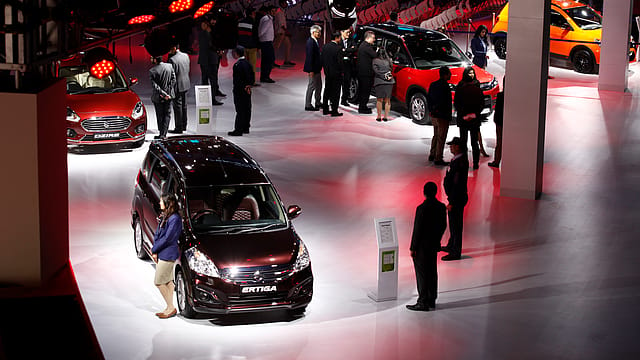Cars to cost more next year
ADVERTISEMENT

Carmakers including Renault, Maruti Suzuki, Mercedes, and others have announced price hikes in the past two weeks which will be effective from January 2020. Renault was the latest company to join the list on Friday.
The French carmaker announced that due to rising input and material costs there will be a “substantial price hike” across its range including new models like the Renault Triber and the Kwid Facelift effective January 2020 onwards. The company has not disclosed the quantum of hike.
The country’s largest carmaker, Maruti Suzuki India, announcing the price hike last week, said that it had become imperative for the company to pass on some impact of the additional cost to customers through a price increase across various models from January 2020.
South Korean carmaker Hyundai Motor’s India unit has made a similar announcement as well. It said the mark-up in price across its range of hatchbacks, sedans, and SUVs will be based on the model and fuel type. Nissan and Datsun announced a 5% increase in prices across all the models in the Datsun Go, Go+, Redigo, Nissan Kicks, Terrano, Sunny, Micra and Micra Active categories.
N. Raja, deputy managing director at Toyota Kirloskar Motor, said, “The company is reviewing two price hikes, first from January 2020 after evaluating costs through the last six months, and the second one on account of transitioning from BS-IV to BS-VI [emission standards].”
India’s eighth-largest carmaker Honda Cars, however, does not plan to raise prices. It said that it will introduce BS-VI vehicles which will come with “relevant price increases” on account of enhanced emission technology.
Recently, luxury carmaker Mercedes-Benz too announced a price hike for its product line-up in India including C-class, E-class S-class, CLA, CLS, V-class, GLA, GLC and G Wagon. “All these models will be subjected to a 3% increase in their respective prices,” the company said.
Even two-wheeler-makers like Hero MotoCorp announced price hikes up to ₹2,000 from January 2020.
For vehicle makers, it’s an annual practice to announce price hikes at the end of the year in order to reduce dealer stocks. However, price hikes coupled with Bharat Stage VI emission norms kicking in next year could have a significant impact on sales. The industry has seen falling sales for more than year due to suppressed market sentiment caused by fuel price volatility, liquidity crunch, rising insurance costs, and concerns over the transition from BS IV to BS VI emission standards.